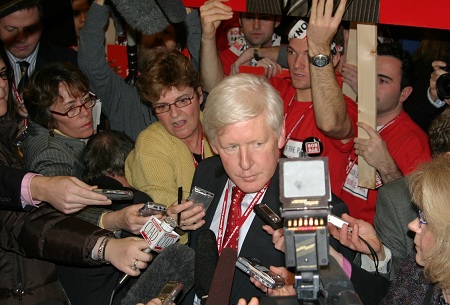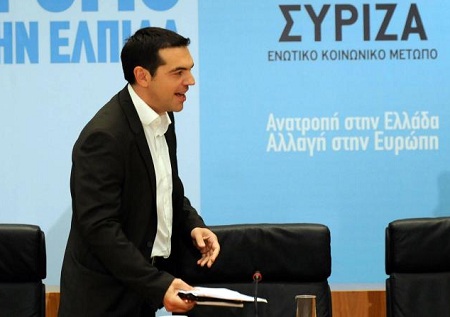Bob Rae, the interim leader of the beleaguered Liberal Party in Canada and one-time premier of Ontario, will not seek the Liberal Party’s leadership.![]()
It is an unexpected announcement — Rae had received better marks for his performance as interim leader than his predecessors Michael Ignatieff (who defeated Rae in 2009 for the leadership) and Stéphane Dion (who defeated Rae in 2006), and was seen to be the frontrunner in the race.
Attention has already shifted to Justin Trudeau, son of former prime minister Pierre Trudeau and the party’s most popular potential leader.
The 40-year-old Trudeau has represented Papineau, a Montreal district, since 2008. Trudeau had previously ruled out a run at the leadership, but pressure is already mounting on Trudeau as the last hope for the once-great party of Canada’s center-left — and he is already ‘listening’ to that pressure in the wake of Rae’s decision.
Even as the party gears up for the leadership contest expected in early 2013, polls show the Conservative Party and the New Democratic Party currently tied for the lead in national polls, with the Liberals still trailing far behind — ThreeHundredEight‘s May 2012 federal poll average showed the NDP with 35%, the Tories with 34% and the Liberals with just 19%.
Rae’s strong performance since 2011 as interim leader had made him a frontrunner alongside Trudeau for the permanent leadership. Indeed, he’s seen as a stronger adversary for Harper than even the official opposition leader — Quebec MP Thomas Mulcair, who was elected as the NDP’s new leader only in March 2012.
But a full-fledged Rae leadership candidacy would have been problematic on several levels:
- In stepping down as interim leader to run in his own right, Rae would have destabilized the Liberals in Parliament at a time when the party can least afford it, with Mulcair now consolidating his position as opposition leader.
- His interim leadership has not done anything to help the Liberals’ poll numbers, which remain as low as the party’s depressed support in the 2011 general election.
- It is unclear that Rae, a twice-failed leadership candidate in his mid-60s, would be able to lead the party through the two or three election cycles that it is likely to take for the party to move up from 34 seats to Official Opposition and then back into government.
- A leadership campaign would have undoubtedly dredged up his controversial record as the NDP premier of Ontario in the 1990s (he failed to win reelection in 1995), and it would also have subjected him to suspicions that he’s keen on engineering a merger with the NDP (which, for what it’s worth, might not be the worst idea for the Liberal Party).
All things considered, his decision seems sound, and it allows Rae to play the elder statesman in the near future as a new generation of Liberals emerge — a generation that seems to begin and end with Trudeau, but includes nearly a dozen of potential leaders: Continue reading Rae won’t seek Liberal leadership in Canada



